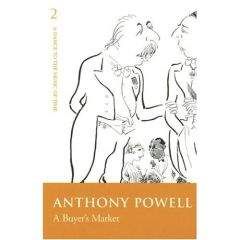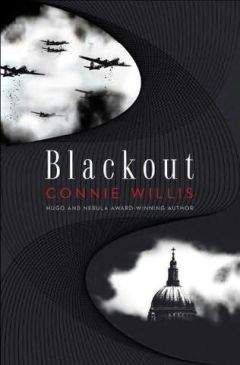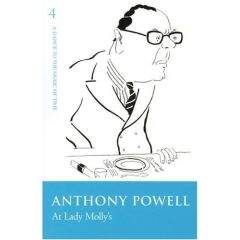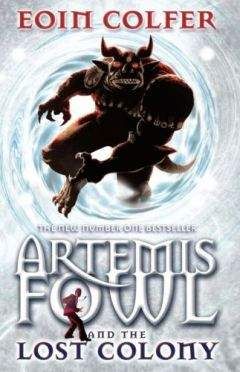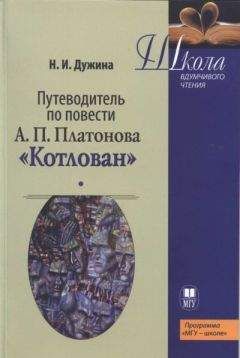W. Ainsworth - Rookwood
"Then why go thither?" asked the count, somewhat ironically; "for my part, I've a strange fancy for keeping out of harm's way as long as possible."
"Every man to his taste," returned Turpin; "I love to confront danger. Run away! pshaw! always meet your foe."
"True," replied the count, "half-way! but you go the whole distance. What prudent man would beard the lion in his den?"
"I never was a prudent man," rejoined Dick, smiling; "I have no superfluous caution about me. Come what will, I shall try to find out this Luke Rookwood, and offer him my purse, such as it is, and it is now better lined than usual; a hand free to act as he lists; and a head which, imprudent though it be, can often think better for others than for its own master."
"Vastly fine!" exclaimed the count, with an ill-disguised sneer. "I hope you don't forget that the marriage certificate which you hold is perfectly valueless now. The estates, you are aware—"
"Are no longer Sir Luke's. I see what you are driving at, count," returned Dick, coldly. "But he will need it to establish his claim to the title, and he shall have it. While he was Sir Luke with ten thousand a year, I drove a hard bargain, and would have stood out for the last stiver. Now he is one of 'us,' a mere Knight of the Road, he shall have it and welcome."
"Perhaps Lady Rookwood, or Mrs. Mowbray, might be inclined to treat," maliciously insinuated the count; "the title may be worth something to Ranulph."
"It is worth more to Luke; and if it were not, he gets it. Are you satisfied?"
"Perfectly," replied the count, with affected bonhomie; "and I will now let you into a secret respecting Miss Mowbray, from which you may gather something for your guidance in this matter; and if the word of woman is at all to be trusted, though individually I cannot say I have much faith in it, Sir Luke's planetary hour is not yet completely overcast."
"That's exactly what I wish to know, my dear fellow," said Turpin, eagerly. "You have already told me you were witness to a singular interview between Miss Mowbray and Sir Luke after my departure from the Priory. If I mistook you not, the whole business will hinge upon that. What occurred? Let me have every particular. The whole history and mystery."
"You shall have it with pleasure," said the count; "and I hope it may tend to your benefit. After I had quitted the scene of action at the Priory, and at your desire left the Rookwood party masters of the field, I fled with the rest of the crew towards the rocks. There we held a council of war for a short time. Some were for returning to the fight; but this was negatived entirely, and in the end it was agreed that those who had wives, daughters and sisters, should join them as speedily as possible at their retreat in the Grange. As I happened to have none of these attractive ties, and had only a troublesome mistress, who I thought could take care of herself, I did not care to follow them, but struck deeper into the wood, and made my way, guided by destiny, I suppose, towards the cave."
"The cave!" cried Dick, rubbing his hands; "I delight in a cave. Tom King and I once had a cave of our own at Epping, and I'll have another one of these fine days. A cave is as proper to a high-tobyman as a castle to a baron. Pray go on."
"The cave I speak of," continued the count, "was seldom used, except upon great emergencies, by any of the Stop-Hole Abbey crew. It was a sort of retiring den of our old lioness Barbara, and, like all belonging to her, respected by her dupes. However, the cave is a good cave for all that; is well concealed by brushwood, and comfortably lighted from a crevice in the rock above; it lies near the brink of the stream, amongst the woods, just above the waterfall, and is somewhat difficult of approach."
"I know something of the situation," said Turpin.
"Well," returned the count, "not to lose time, into this den I crept, and, expecting to find it vacant, you may imagine my surprise on discovering that it was already occupied, and that Sir Luke Rookwood, his granddad, old Alan, Miss Mowbray, and worst of all, the very person I wished most to avoid, my old flame Handassah, constituted the party. Fortunately, they did not perceive my entrance, and I took especial care not to introduce myself. Retreat, however, was for the moment impracticable, and I was compelled to be a listener. I cannot tell what had passed between the parties before my arrival, but I heard Miss Mowbray implore Sir Luke to conduct her to her mother. He seemed half inclined to comply with her entreaties; but old Alan shook his head.
"It was then Handassah put in a word; the minx was ever ready at that. 'Fear not,' said she, 'that she will wed Sir Ranulph. Deliver her to her friends, I beseech you, Sir Luke, and woo her honourably. She will accept you.' Sir Luke stared incredulously, and grim old Alan smiled. 'She has sworn to be yours,' continued Handassah; 'sworn it by every hope of heaven, and the oath has been sealed by blood—by Sybil's blood.'—'Does she speak the truth?' asked Sir Luke, trembling with agitation. Miss Mowbray answered not. 'You will not deny it, lady,' said Handassah. 'I heard that oath proposed. I saw it registered. You cannot deny it.'—'I do not,' replied Miss Mowbray, with much anguish of manner; 'if he claim me, I am his.'—'And he will claim you,' said Alan Rookwood, triumphantly. 'He has your oath, no matter how extorted—you must fulfil your vow.'—'I am prepared to do so,' said Eleanor. 'But if you would not utterly destroy me, let this maid conduct me to my mother, to my friends.'—'To Ranulph?' asked Sir Luke, bitterly.—'No, no,' returned Miss Mowbray, in accents of deepest despair, 'to my mother—I wish not to behold him again.'—'Be it so,' cried Sir Luke; 'but remember, in love or hate, you are mine; I shall claim the fulfilment of your oath. Farewell. Handassah shall lead you to your mother.' Miss Mowbray bowed her head, but returned no answer, while, followed by old Alan, Sir Luke departed from the cavern."
"Whither went they?" demanded Turpin.
"That I know not," replied Jerry. "I was about to follow, when I was prevented by the abrupt entrance of another party. Scarcely, I think, could the two Rookwoods have made good their retreat, when shouts were heard without, and young Ranulph and Major Mowbray forced their way, sword in hand, into the cave. Here was a situation—for me, I mean—to the young lady, I make no doubt, it was pleasant enough. But my neck was in jeopardy. However, you know I am not deficient in strength, and upon the present occasion, I made the best use of the agility with which nature has endowed me. Amidst the joyous confusion—the sobbings, and embracings, and congratulations that ensued—I contrived, like a wild cat, to climb the rocky side of the cave, and concealed myself behind a jutting fragment of stone. It was well I did so, for scarcely was I hidden, when in came old Barbara, followed by Mrs. Mowbray, and a dozen others."
"Barbara!" ejaculated Dick. "Was she a prisoner?"
"No," replied Jerry, "the old hell-cat is too deep for that. She had betrayed Sir Luke, and hoped they would seize him and his granddad. But the birds were flown."
"I'm glad she was balked," said Dick. "Was any search made after them?"
"Can't say," replied Jerry. "I could only indistinctly catch the sounds of their voices from my lofty retreat. Before they left the cavern, I made out that Mrs. Mowbray resolved to go to Rookwood, and to take her daughter thither—a proceeding to which the latter demurred."
"To Rookwood," said Dick, musingly. "Will she keep her oath, I wonder?"
"That's more than I can say," said Jerry, sipping his punch.
"'Tis a deceitful sex, indeed," echoed Dick, tossing off a tumbler. "For one Sybil we meet with twenty Handassahs, eh, count."
"Twenty!—say rather a hundred," replied Jerry. "'Tis a vile sex!"
| Contents |
CHAPTER II
TOM KING
PEACE, base calumniators,” exclaimed Tom King, aroused from his toothpick reverie by these aspersions of the best part of creation. “Peace, I say. None shall dare abuse that dear devoted sex in the hearing of their champion, without pricking a lance with him in their behalf. What do you, either of you, who abuse woman in that wholesale style, know of her? Nothing—less than nothing; and yet you venture, upon your paltry experience, to lift up your voices and decry the sex. Now I do know her; and upon my own experience avouch, that, as a sex, woman, compared with man, is as an angel to a devil. We 'tis that make her otherwise; we, selfish, exacting, neglectful men; we teach her indifference, and then blame her apt scholarship. We spoil our own hand, and then blame the cards. No abuse of women in my hearing. Give me a glass of grog, Dick. —The sex!—three times three!'—and here's a song for you into the bargain.” Saying which, in a mellow plaintive tone, Tom gave the following:
PLEDGE OF THE HIGHWAYMAN
Come, fill up a bumper to Eve's fairest daughters,
Who have lavished their smiles on the brave and the free;
Toast the sweethearts of DUDLEY, HIND, WILMOT, and WATERS, 1
Whate'er the attraction, whate'er their degree.
Pledge! pledge in a bumper, each kind-hearted maiden,
Whose bright eyes were dimmed at the highwayman's fall;
Who stood by the gallows with sorrow o'erladen,
Bemoaning the fate of the gallant DU-VAL!
Here's to each lovely lass chance of war bringeth near one,
Whom, with manner impassioned, we tenderly stop;
And to whom, like the lover addressing his dear one,
In terms of intreaty the question we pop.
How oft, in such case, rosy lips have proved sweeter
Than the rosiest book, bright eyes saved a bright ring
While that one other kiss has brought off a repeater,
And a bead as a favour—the favourite string.
With our hearts ready rifled, each pocket we rifle,
With the pure flame of chivalry stirring our breasts;
Life's risk for our mistress's praise is a trifle;
And each purse as a trophy our attests.
Then toss off your glasses to all girls of spirit,
Ne'er with names, or with number, your memories vex;
Our toast, boys, embraces each woman of merit,
And, for fear of omission, we'll drink the WHOLE SEX.
"Well," replied Dick, replenishing King's rummer, while he laughed heartily at his ditty, "I shan't refuse your toast, though my heart don't respond to your sentiments. Ah, Tom! the sex you praise so much will, I fear, prove your undoing. Do as you please, but curse me if I ever pin my life to a petticoat. I'd as soon think of neglecting the four cautions."
"The four cautions," said King; "what are they?"
"Did you never hear them?" replied Dick. "Attend, then, and be edified."
THE FOUR CAUTIONS
Pay attention to these cautions four,
And through life you will need little more,
Should you dole out your days to threescore
Beware of a pistol before!
Before! before!
Beware of a pistol before!
And when backwards his ears are inclined,
And his tail with his ham is combined,
Caution two you will bear in your mind:
Beware of a prancer behind!
Behind! behind!
Beware of a prancer behind!
Thirdly, when in the park you may ride,
On your best bit of blood, sir, astride,
Chatting gay to your old friend's young bride:
Beware of a coach at the side!
At the side! at the side!
Beware of a coach at the side!
Lastly, whether in purple or grey,
Canter, ranter, grave, solemn, or gay,
Whate'er he may do or may say,
Beware of a priest every way!
Every way! every way!
Beware of a priest every way!
"Well," said Tom King, "all you can sing or say don't alter my good opinion of the women. Not a secret have I from the girl of my heart. She could have sold me over and over again if she had chosen, but my sweet Sue is not the wench to do that."
"It is not too late," said Dick. "Your Delilah may yet hand you over to the Philistines."
"Then I shall die in a good cause," said King: "but
The Tyburn tree
Has no terrors for me,
Let better men swing—I'm at liberty.
I shall never come to the scragging-post, unless you turn topsman, Dick Turpin. My nativity has been cast, and the stars have declared I am to die by the hand of my best friend—and that's you—eh, Dick?"
"It sounds like it," replied Turpin; "but I advise you not to become too intimate with Jack Ketch. He may prove your best friend after all."
"Why, faith, that's true," replied King, laughing; "and if I must ride backwards up Holborn Hill, I'll do the thing in style, and honest Jack Ketch shall never want his dues. A man should always die game. We none of us know how soon our turn may come; but come when it will, I shall never flinch from it.
As the highwayman's life is the fullest of zest,
So the highwayman's death is the briefest and best;
He dies not as other men die, by degrees!
But AT ONCE! without wincing, and quite at his ease!
as the song you are so fond of says. When I die it will not be of consumption. And if the surgeon's knife must come near me, it will be after death. There's some comfort in that reflection, at all events."
"True," replied Turpin, "and, with a little alteration, my song would suit you capitally:
There is not a king, should you search the world round,
So blithe as the king's king, TOM KING, to be found:
Dear woman's his empire, each girl is his own,
And he'd have a long reign if he'd let em alone!
Ha, ha!"
"Ha, ha!" laughed Tom. "And now, Dick, to change the subject. You are off, I understand, to Yorkshire to-night. 'Pon my soul, you are a wonderful fellow—an alibi personified!—here and everywhere at the same time—no wonder you are called the flying highwayman. To-day in town—to-morrow at York—the day after at Chester. The devil only knows where you will pitch your quarters a week hence. There are rumours of you in all counties at the same moment. This man swears you robbed him at Hounslow; that on Salisbury Plain; while another avers you monopolise Cheshire and Yorkshire, and that it isn't safe even to hunt without pops in your pocket. I heard some devilish good stories of you at D'Osyndar's t'other day; the fellow who told them to me little thought I was a brother blade."
